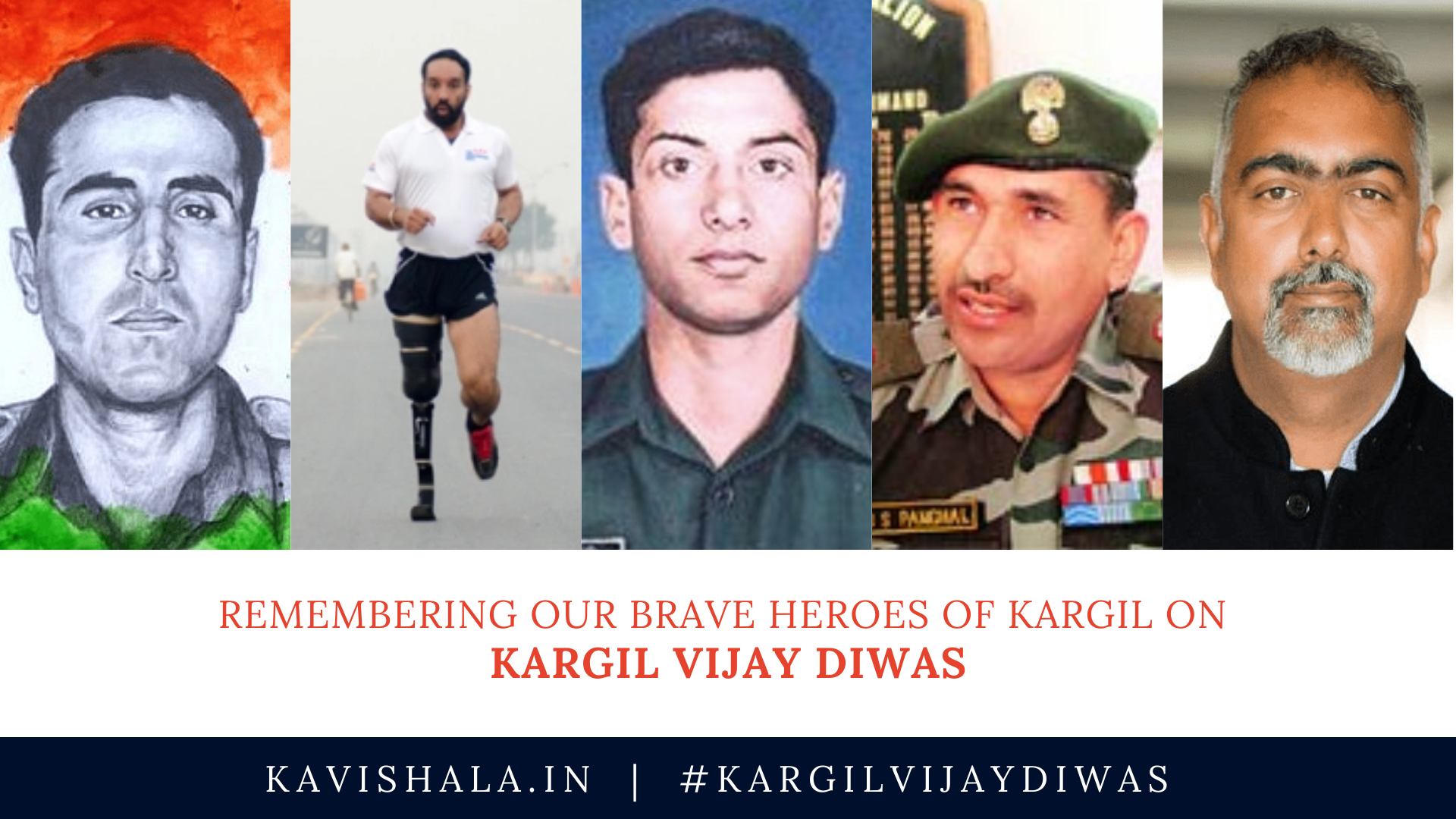
22 years later, remembering our brave heroes of Kargil | Kargil Vijay Diwas
Aw we know July 26, 1999 is the date which can never be forgotten. Before twenty one years on, on Kargil Vijay Diwas, We're celebrating the victory and sacrifice of our armed forces who fought back bravely against Pakistan to recapture its own territories. But we should never forget, this victory came with a heavy price of lives of our heroes. The defence forces fought bravely and with valour, no doubt, but the country also lost a large number of soldiers during the Kargil war. As Indians, we tend to take the service of soldiers for granted, not realising how gruelling life as a soldier can be. Their service to their country makes them relentless, in mind, body, and spirit.
On 22st Kargil Vijay Diwas, Kavishala remembers the stories of some of these brave heroes and their unparalleled service to the nation, as they battled one of the toughest war operations in the most dangerous and difficult terrain.
- Captain Vikram Batra: Also known as Sher Shah, (lion king) Captain Vikram Batra from Himachal Pradesh played an important role during the Kargil war, recapturing Peak 5140, located at an altitude of 17,000 ft, and Peak 4875. Since childhood, Captain Batra was an all-rounder, proficient in academics, sports, and extracurriculars. Deeply patriotic from a young age, he joined the Indian Military Academy (IMA) at Dehradun, in June 1996. After completing his training, he served in Jammu and kashmir, Madhya Pradesh, Karnataka, Uttar Pradesh. Excelling in his training, he rose to the rank of Captain, before joining forces in Kargil. This mission was difficult and dangerous as Indian soldiers had to climb the peak with the enemy perched at the top. Despite the risks involved, he managed to kill many enemy soldiers.
- Major Devender Pal Singh: India’s first blade runner, former Major Devender Pal Singh lost his leg and part of his intestines in the Kargil war. He was only 25 when he was hit by mortar fire on a Himalayan battlefield, and was injured in several parts of his body with shrapnel. He was initially declared dead by the army surgeon at the field hospital, but was later revived. However, his infected leg had to be amputated. Major Singh served in the army for 10 years, joining the 7th battalion in 1997. Upon retiring after his injury, he did not give up and started play
